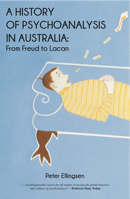At a time when positive psychology is gaining ground, I want to ring the bell for the maligned art of coming to grips with failure. This is not a morbid preoccupation, but a wish to embrace possibility. As we approach the centenary of Anzac Day, it is worth reflecting that the myth sustaining Australian identity is based a military disaster, not triumph. Men became admirable at Gallipoli for trying and failing, not for succeeding.
Success, after all, is nothing if not the ability to fail and, as Samuel Beckett, advised, fail again, better. All progress arises from failure. It is when things fail that minds get to work and devise better solutions. Success breeds contempt and is, I suspect, the province of timid minds. History confirms this – as does psychoanalysis. Wartime UK Prime Minister, Winston Churchill, was created by failure. Before he led Britain’s resistance to Hitler he was a dismally failed First Lord of Admiralty (responsible for the fiasco of 25th of April landing at Anzac Cove). And when a patient comes along for an analysis, he or she is asked to demonstrate failure by speaking without self-censoring – a process that shows how words fail to bear the weight we put on them.
In both cases – that of history and psychoanalysis – failure is productive, not because good guys come last, but because good outcomes arise from bad ones. Clearly, this is not always the case. We can learn to fail without learning from it. But that is wilful intent, a refusal to see that failure is the progenitor of new thinking and risk-taking. As the American writer, Megan McArdle, argues in The Upside Down: Why Failing Well is the Key to Success, what has to be understood is that failure is how we learn, the natural consequence of risk and complexity.
McArdle’s view is that: “Since we cannot succeed simply by not failing, we should stop spending so much energy trying to avoid failure or engineer it away. Instead, we should embrace it – smartly.” The problem, of course, is that failure carries a stigma and in this society is likely to lower self respect, which is why it is often linked with unhappiness. The premise here is that success is conducive of happiness, as if happiness is something that can be engineered, rather than, as the root of the word in both ancient Greek and every Indo-European language reveals, a correlate with luck. In English the root is happ, or chance, and is seen in words like happenstance. For me this suggests that happiness is a by-product, not, as Positive Psychology would have it, a goal. The conflation of the two ideas – positive willing and happiness – is clear in the way that Positive Psychology’s key exponent, Dr Martin Seligman portrays his creation as authentic happiness.
While Positive Psychology has some interesting ideas, and draws on the ancient cultures of India and China to come up with six character strengths – wisdom and or knowledge, courage, humanity, justice, temperance and transcendence, it has, I think, the ring of popular culture about it. As British psychoanalyst and writer, Adam Phillips, says, Seligman ’s creation has a sense of fundamentalism to it.
Happiness is, Phillips declares, “the most conformist of moral aims.” He sees a simple test. “Read a really good book on positive psychology, and read a great European novel. The difference is evident in one thing – the complexity and subtlety of the moral and emotional life of the characters in the European novel are incomparable. Read a positive-psychology book, and what would a happy person look like? He’d look like a Moonie. He’d be empty of idiosyncrasy and the difficult passions.”
Optimism, in other words, is not everything. It is useful, but it can be banal and delusional, just as pessimism can be necessary and informative. As Freud noted when he wrote his landmark Mourning and Melancholia, feeling unhappy, that is, really registering pain and loss, is the price we pay for avoiding ongoing, chronic depression. To mimic happiness is perhaps to miss the opportunity to come to a new appreciation of incompleteness and therefore of possibility. The point is well made in The Rise: Creativity, the Gift of Failure, and the Search for Mastery by American art historian and curator, Sarah Lewis. As American writer, Scott Sandage suggests in The Sunday Book Review, for Lewis, managing the gap between vision and work, which can look like being swallowed by failure, is life-long. “Failure is ever-present in the unending drift toward mastery”, Lewis says.
Like Buddha, she sees value in pondering the greatest loss of all, death. Rather than, as our culture tends to do, disguise death, Lewis urges its contemplation. “When we surrender to the fact of death, not the idea of it, we gain license to live more fully, to see life differently … to walk down paths of my own choosing, which to some might seem like failure.” In all this, as in psychoanalysis, words can and do buckle and bend under the weight of the meaning we want to find.
In his review, Sandage highlights McArdle’s line: “Failure is sort of a junk drawer of a word: We dump all sorts of meanings into it, and then when something goes wrong, we rummage around and pull one out.” Jacques Lacan, the French Freud, had a more succinct notion. Truth, he said, can only “ever be half said”. We have to go on saying it. But not with the expectation of precision that quasi science like Positive Psychology, likes conjure up.

